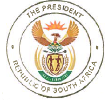President Zuma has been consistent on Nkandla matter
04 February 2016
A full transcript of an interview conducted (on 03 February 2016) by Mr Michael Hulley, Legal Advisor to President Jacob Zuma
The President yesterday (02 February 2016) filed with the Constitutional Court the correspondence which sets out his proposal for resolution of the matter that comes before the court on the 9th February, which is next week.
That approach is consistent with what had been contained in the President’s affidavit wherein he sets out that he will adopt the findings of the Public Protector and in so far as there needs to be a mechanism which needs to be created to determine what is reasonable costs and consequently what would be a reasonable amount, if any, that the President ought then to pay. There has been no adverse finding made by the Public Protector that renders the President culpable on any matter.
The President has always sought to implement the mechanism which would determine whether there’s an amount that he ought to pay in respect of the security features that have been implemented at his residence. He has endeavoured to engage with the Minister of Police, he has allowed the parliamentary process to take its course, all of which so he doesn’t sit in judgement over what is in essence his own case.
The proposal which sits before the Constitutional Court at the moment is an endeavour to bring about a mechanism, using a Chapter 9 institution like the Auditor-General which would aid and assist if the court deems it necessary in determining what the audited expenditure was and what the audited contribution then would be that the President ought to pay.
This has been a consistent approach the President has adopted both when he complied with the Public Protector’s directive that he must report within 14 days to Parliament, he set out in Parliament that he would compose the mechanism to determine those issues. Likewise in filing his papers before the Constitutional Court in November of last year, 2015, he alluded to the fact that he has not at any stage failed to comply with the Public Protector’s report.
In those same papers that were filed he set out and proposed to all the parties and the court respectfully that the adoption of the use of the Auditor-General, coupled with an official from National Treasury would be the best independent persons that should be able to make such an adjudication. In the draft order that has been filed before court and in terms of the proposal, the President would abide by whatever amount has been determined by the Auditor-General and the Treasury official and he commits himself to that payment.
This is not a new approach that has been adopted, the President both in answering questions in Parliament, coupled with his address, has always said he would abide by the process. I think where the variance has been as to what that process must be and who would be engaged in that process. We’ve had various commentaries about the role that the Minister of Police has played and so on and so forth.
The indubitable fact is that as the consequence of the Public Protector’s report, Cabinet has reviewed its policy and has adopted in accordance with the proposals that have been made by the Public Protector, new measures to ensure that there is public accountability for the expenses that are incurred in respect of the Members of the Executive. Equally the President by proclamation through the SIU, has ensured that the investigations will proceed as a consequence of that the civil claims have been brought against those parties who in the judgement of the SIU are culpable for payments that need to be made to the State.
We have also seen various departmental inquiries that have ensued where the conduct of officials have been examined also flowing from the Public Protector’s report. And as I said all of this was contained in the report which the President had submitted in accordance with the Public Protector’s wish to the Parliament and these are the on-going measures.
So this intervention which the President seeks to make in the Constitutional Court is consistent with the approach that he has displayed and it’s an effort to bring about accountability and responsibility on the part of the Executive in respect of its conduct.
To view the interview with Mr Michael Hulley, Legal Advisor to President Jacob Zuma, click here: http://bit.ly/1RZUw53
To view President Zuma as he answers questions in Parliament on the Nkandla matter, click here: http://bit.ly/1nOH7AL
Statement issued by Bongani Majola. The Presidency, 4 February 2016

